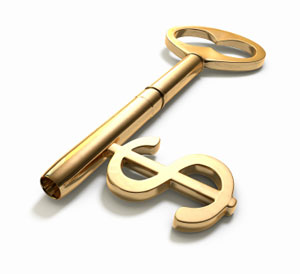Calculating your Refinance Closing Costs
By Gretchen Wegrich Updated on 7/19/2017 When refinancing, borrowers should calculate the costs of the refinance against the potential benefits. Typically, this requires comparing the gains of a lower interest rate or shorter term against the cost of securing a refinance loan.
When refinancing, borrowers should calculate the costs of the refinance against the potential benefits. Typically, this requires comparing the gains of a lower interest rate or shorter term against the cost of securing a refinance loan.
However, evaluating the cost of a can be difficult due to the various closing costs, which differ from lender to lender.
To clarify this issue, consider the following step-by-step instructions for approximating closing costs, as well as an explanation of the most common refinance closing costs.
Determining Closing Costs for Calculating Your Refinance
- Evaluate the number of points, or prepaid interest, that the lender requires. Note, any changes in points will affect the closing cost amount.
- Divide this number by 100 and multiply it by the cost of the loan; the result the total cost of the points.
- Discuss with your lender the amount of the appraisal fee, which you must pay during closing.
- Determine from your lender how much the underwriting charge will be.
- Assess the fees that the lender charges for a credit report and the review of your credit history.
- Find out the cost of title insurance, which is required by the lender.
- Calculate a total of the expenses based on the information you received from your lender. This sum should include applicable government recording fees, tax services, flood certification, pest inspection, and any mandated surveys.
- Determine the costs of establishing an escrow account. Your lender will expect payments for homeowners insurance and real estate taxes through an escrow account if the mortgage loan exceeds the value of the home by 65% or more. Frequently, lenders require escrow payments of about two monthly payments at closing.
- Determine whether attorney fees will be levied and how much it will be.
- Total up all of the expenses and the sum will be an approximation of your total closing costs.
Explanation of Calculating Refinance Closing Costs
Application Charge
Regardless of your mortgage application approval, you'll be charged a fee for applying for a refinance. This fee is often between $200-$600 and includes the costs associated with processing your refinance request as well as the steps mentioned above.
However, for a more accuracy, ask your lender to find out the exact cost of applying.
Document Preparation Fee
As refinancing involves obtaining the replacement of a current mortgage with a new loan with differing terms, various legal documents will be needed to complete the transaction. Borrowers will assume the majority of these expenses; as such, you should allot at least $300 for this charge.
Appraisal Fee
In the processing a refinance, your home must be appraised to determine its current market value. Typically, appraisal costs between $150 and $400.
Settlement Cost
Also known as a closing fee, borrowers pay this fee to cover the expenses of the settlement agent who prepares the documentation, calculates data, and manages the proper completion of the closing documents. This costs $300-$400 at least.
Title Examination Fee
When performing a loan transaction, the lender must verify that your property does not have any outstanding liens against it or other issues, such as “clouded deeds.”
Depending on your location and the title company you work with, this charge can be as low as $100 or as high as $500; as such, it is advisable that you discuss this fee with your lender before applying.
Title Insurance Fee
Title insurance provides homeowners with protection against any issues related to the property title. While title examinations will typically reveal any potential issues, this insurance guarantees that if any problem was overlooked that you will not be held responsible as the homeowner. Title insurance fees cost between $225-$400.
Escrow Fees
Escrow fees cover the costs of enlisting a third-party to facilitate the mortgage transaction between the borrower and the lender. These costs may differ from state to state.
Mortgage Insurance
Borrowers who own less than 20% of their home’s equity must pay mortgage insurance fees. Unlike other forms of insurance, mortgage insurance solely benefits the lender and should be avoided when possible.
These fees vary depending on the type of loan, although the up-front costs may be included within the loan balance in many cases.
Property Taxes
At the time of closing, borrowers must be current on all property taxes. Consequently, some borrowers will incur a charge for the appropriate tax payment amount within their loan closing fees.
Additional Charges
Many other fees may be added to the closing costs, including fees paid to the attorney or title company. Borrowers should anticipate these fees totaling around $800, although this varies by location.
Junk Fees for Refinance Closing Costs
In addition to standard lender and broker fees, closing costs may sometimes include junk fees, which are small, extraneous charges whose only purpose is to inflate the cost of closing the loan.
Although relatively inexpensive, these junk fees can add hundreds of dollars to traditional closing costs and should be avoided when possible.
Broker or Lender Fees
While broker and lender fees generally cover the fundamental expenses of the mortgage process, such as administrative fees, document preparation, and processing charges, some lenders attempt to sneak in junk fees under this pretext.
Be wary of any fees which are not justifiable, such as “Fed-Ex fees,” “faxing fees,” or “courier service fees.”
Third-party Fees
Third party fees typically include the costs involved in bringing in third-parties to the loan process, such as appraisers, inspectors, etc. As with broker and lender fees, lenders may insert junk fees disguised as third-party fees, including charges for faxing, mailing, and courier fees.
In fact, it may not be necessary to disclose it openly; borrowers may need to locate these fees on their HUD-1 statement, the list of closing cost items which borrowers receive several days before closing the loan.
If you detect these fees on your statement, discuss them with your lender and negotiate the removal of these additional charges.
For standard closing cost refinances, borrowers pay an average of 2% to 3% of the total loan amount in closing costs, significantly lower than the closing costs associated with an initial home purchase loan.
In some cases, the closing costs of refinancing can diminish the profitability of the transaction, however, borrowers who carefully consider all aspects and options, weighing the potential savings against the involved costs, can benefit remarkably from a refinance.

Didn't find the answer you wanted? Ask one of your own.
Related Articles
Ask our community a question.
Searching Today's Rates...

Featured Lenders
Cameron Burke
Vision One Mortgage
Huntington Beach, CA
Kat Whitman
Whitman Met, Inc.
Sacramento, CA
Lisa Stepp
RBS Citizens
Clifton Park, NY





